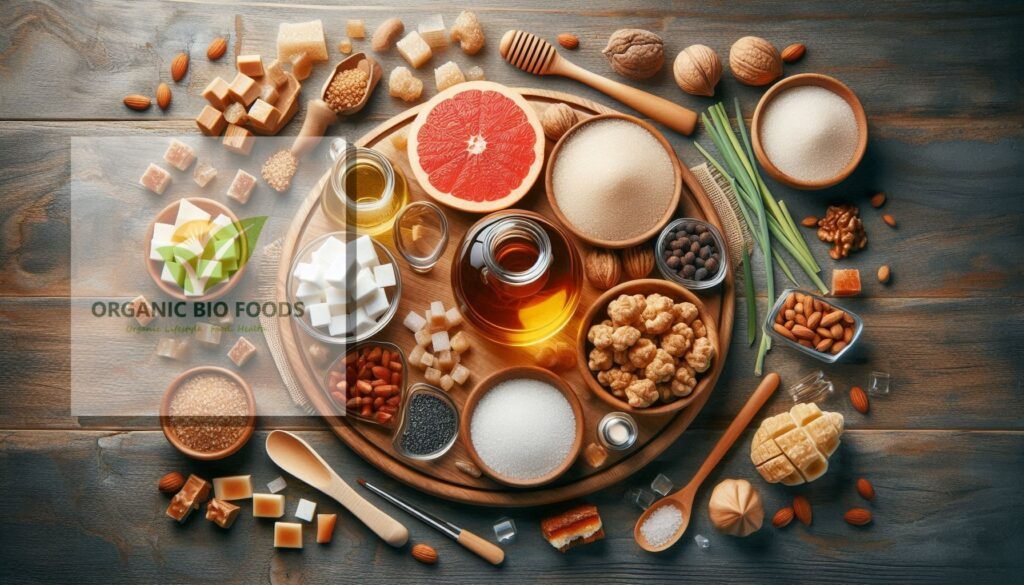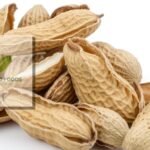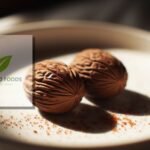Fructose intolerance might sound complicated, but it’s really about how your body handles a type of sugar called fructose. Some people have trouble digesting fructose, and this can lead to some pretty uncomfortable symptoms like bloating, gas, and stomach pain. The good news? With a few changes to your diet, particularly focusing on organic foods, you can manage fructose intolerance much more easily.
In this post, we’ll break down what fructose intolerance is, how it affects your body, and explore how switching to organic foods can make a big difference.
What is Fructose Intolerance?
Fructose is a sugar found in many fruits, vegetables, and processed foods. Fructose intolerance happens when your body can’t properly absorb this sugar in the small intestine. There are two types of fructose intolerance: Hereditary Fructose Intolerance (HFI) and Fructose Malabsorption (or dietary fructose intolerance).
- Hereditary Fructose Intolerance (HFI): This is a rare genetic disorder where the liver lacks an enzyme needed to break down fructose. People with HFI have to avoid fructose entirely because it can lead to serious health problems like liver and kidney damage.
- Fructose Malabsorption: This is much more common and less severe than HFI. In this case, the body struggles to absorb fructose from the gut into the bloodstream. The unabsorbed fructose then ferments in the colon, causing symptoms like bloating, gas, diarrhea, and stomach pain.
Many people with fructose intolerance have to be careful with what they eat because even small amounts of fructose can trigger symptoms.
Symptoms of Fructose Intolerance
The symptoms of fructose intolerance can range from mild to severe, depending on how much fructose a person consumes and how sensitive their body is. Common symptoms include:
- Bloating
- Gas
- Diarrhea
- Stomach cramps or pain
- Nausea
- Fatigue
Sometimes, people confuse fructose intolerance with other digestive issues like irritable bowel syndrome (IBS). However, one way to tell the difference is by keeping track of how you feel after eating foods that are high in fructose, like apples, honey, or soda.
If you experience digestive discomfort after eating these foods, it could be a sign that you’re dealing with fructose intolerance. Consulting with a doctor or dietitian can help you get a proper diagnosis and treatment plan.
How Fructose Affects the Body
Fructose isn’t digested like other sugars. Normally, sugars like glucose get absorbed directly into the bloodstream. Fructose, however, is absorbed in the small intestine by a protein called GLUT-5. If your body doesn’t make enough of this protein, or if your small intestine doesn’t work efficiently, the fructose you eat passes into your colon undigested.
Once in the colon, bacteria break down the fructose, which produces gas and fatty acids. This is what causes the bloating, gas, and discomfort. Over time, if left unchecked, fructose malabsorption can lead to nutrient deficiencies because the small intestine isn’t working as efficiently as it should.
Organic Foods and Fructose Intolerance: Why Go Organic?
Now that we’ve covered what fructose intolerance is and how it affects your body, let’s talk about the role of organic foods in managing this condition. Eating organic can benefit everyone, but for people with fructose intolerance, it’s especially important. Here’s why:
- No Added Sugars or Sweeteners: Organic foods are often free from artificial sweeteners and added sugars, which are common triggers for people with fructose intolerance. Processed foods, especially those labeled “sugar-free” or “low-fat,” can contain sweeteners like high-fructose corn syrup, sorbitol, or other sugar alcohols that are difficult for the body to absorb and can make symptoms worse .
- Cleaner Ingredients: Organic foods are grown without the use of synthetic pesticides, herbicides, or genetically modified organisms (GMOs). For people with digestive issues, including fructose intolerance, reducing exposure to chemicals and artificial ingredients may help lessen symptoms and improve overall gut health .
- Whole, Natural Foods: Organic foods encourage you to eat more whole, unprocessed foods. When you eat whole fruits, vegetables, grains, and proteins, it’s easier to control your fructose intake and avoid hidden sources of sugar. This can help reduce the frequency of fructose malabsorption symptoms .
- Better Nutrient Content: Organic foods, especially fruits and vegetables, often have a higher nutrient content than their non-organic counterparts. Since fructose intolerance can interfere with nutrient absorption, eating nutrient-dense foods can help ensure you’re getting the vitamins and minerals you need to stay healthy .
Low-Fructose Organic Foods
While fructose intolerance means you need to limit or avoid high-fructose foods, there are plenty of low-fructose options available, especially if you focus on organic choices. Here’s a list of organic foods that are lower in fructose and can be safely included in a fructose intolerance diet:
- Leafy Greens: Organic spinach, kale, and lettuce are great options that are packed with nutrients but low in fructose.
- Berries: Blueberries, strawberries, and raspberries are lower in fructose compared to other fruits, making them a good choice in moderation.
- Avocados: This nutrient-dense fruit is low in fructose and high in healthy fats.
- Carrots: A naturally sweet vegetable that doesn’t contain much fructose.
- Quinoa: An excellent source of protein and fiber, quinoa is also a low-fructose grain.
- Eggs: Organic eggs are a perfect low-fructose source of protein.
By focusing on these low-fructose foods, you can still enjoy a variety of flavors and nutrients without triggering symptoms.
Foods to Avoid with Fructose Intolerance
Of course, there are also certain foods you’ll want to steer clear of if you have fructose intolerance. Here’s a list of common high-fructose foods to avoid:
- Fruits high in fructose: Apples, pears, watermelon, and cherries are high in fructose and may cause digestive upset.
- Sweeteners: High-fructose corn syrup, honey, agave nectar, and even natural sweeteners like maple syrup are off-limits.
- Sodas and fruit juices: These drinks often contain added sugars or sweeteners that can worsen symptoms.
- Processed snacks: Many snack foods, especially low-fat or sugar-free varieties, contain hidden fructose or sugar alcohols.
How to Transition to an Organic, Low-Fructose Diet
Making the switch to an organic, low-fructose diet doesn’t have to be difficult. With some simple planning, you can enjoy delicious, wholesome meals that are easy on your digestive system. Here are a few tips for getting started:
- Read Labels: Check the ingredients on everything you buy, especially packaged foods. Look for hidden sugars or sweeteners, even in “healthy” foods.
- Plan Your Meals: Focus on whole, organic foods that are naturally low in fructose. Plan your meals around leafy greens, lean proteins, and low-fructose fruits like berries.
- Cook at Home: One of the best ways to avoid hidden fructose is to cook your meals at home using fresh, organic ingredients. That way, you know exactly what’s in your food.
- Keep a Food Diary: Track what you eat and how it makes you feel. This can help you identify any foods that may be causing symptoms and help you avoid them in the future.
- Consult a Dietitian: If you’re struggling with fructose intolerance, it can be helpful to work with a dietitian who specializes in digestive issues. They can help you develop a personalized meal plan that meets your nutritional needs without triggering symptoms.
Conclusion
Fructose intolerance can be frustrating, but with the right diet and some lifestyle changes, you can manage your symptoms and improve your quality of life. By focusing on organic foods and cutting out processed, high-fructose options, you’ll give your digestive system a break and enjoy better health overall. Organic foods, rich in nutrients and free from harmful chemicals, offer a great way to nourish your body while keeping fructose intolerance in check.
Whether you’re dealing with hereditary fructose intolerance or just trying to manage fructose malabsorption, the path to feeling better is within reach. Take it one step at a time, listen to your body, and embrace the power of organic foods to support your health journey.








